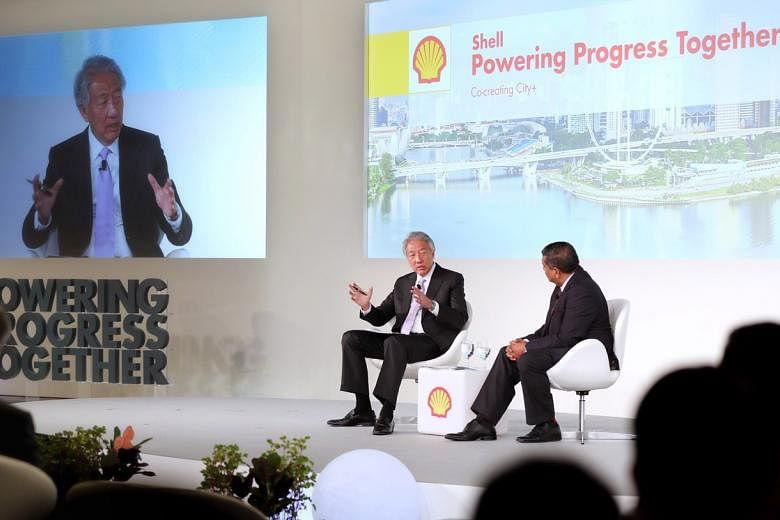SINGAPORE - As a small, low-lying island state, Singapore will continue to take preventive action against the impact of climate change, Senior Minister Teo Chee Hean said on Thursday (July 4).
Mr Teo drew attention in particular to the Republic's efforts in going low-carbon and managing rising sea levels in a speech at the sixth Asian edition of the Shell Powering Progress Together forum.
Singapore raised the minimum level for newly reclaimed land by 1m in 2011, a move that preceded the Intergovernmental Panel on Climate Change's (IPCC) most recent report in 2014 by three years.
The report projected that global sea levels - relative to Singapore's sea levels from 1986 to 2005 - will rise 1m by 2100 if the world's current carbon emission trajectory remains unchanged.
But sea waters could potentially rise even further, Mr Teo noted, as the report did not factor in the impact from the possible collapse of melting Antarctica ice shelves.
"We are currently studying what further measures we need to take, such as reclamation, sea walls or pumping stations, to better protect our coastal areas," said Mr Teo, who is also Coordinating Minister for National Security.
"By planning early, we can phase in the necessary measures so that the cost can be spread out over many years."
For example, the new mega-port at Tuas Terminal and Changi Airport Terminal 5 will be built 1m and 1.5m above the minimum level required respectively.
The focus of this year's forum was on sustainable energy use in future cities. At the forum, Shell launched its first global City Solutions Living Lab, to be located here.
A multidisciplinary team will develop technological solutions aimed at helping cities move people and goods with lower emissions and switch to cleaner energy options, while working together with city authorities.
Shell said it chose to base the lab in Singapore due to the city-state's active push for energy transition and sustainability, its pro-business environment and Shell's longstanding presence here, going back to 1891.
Singapore's commitment to a green environment dates back to the 1960s and going low-carbon is an extension of that, said Mr Teo.
Singapore introduced a carbon tax earlier this year and is investing in infrastructure for more electric vehicles to reduce the nation's carbon footprint.
The tax, currently set at $5 per tonne of greenhouse gas emissions in carbon dioxide equivalent, will be reviewed in 2023 with a view to increasing it to between $10 and $15 by 2030.
Mr Teo added that Singapore is happy to work with businesses like Shell who have adopted significant measures to reduce their carbon footprint.
"Businesses need to transform their business models for a world that demands corporate climate responsibility, and take advantage of the opportunities that this offers," he said.


